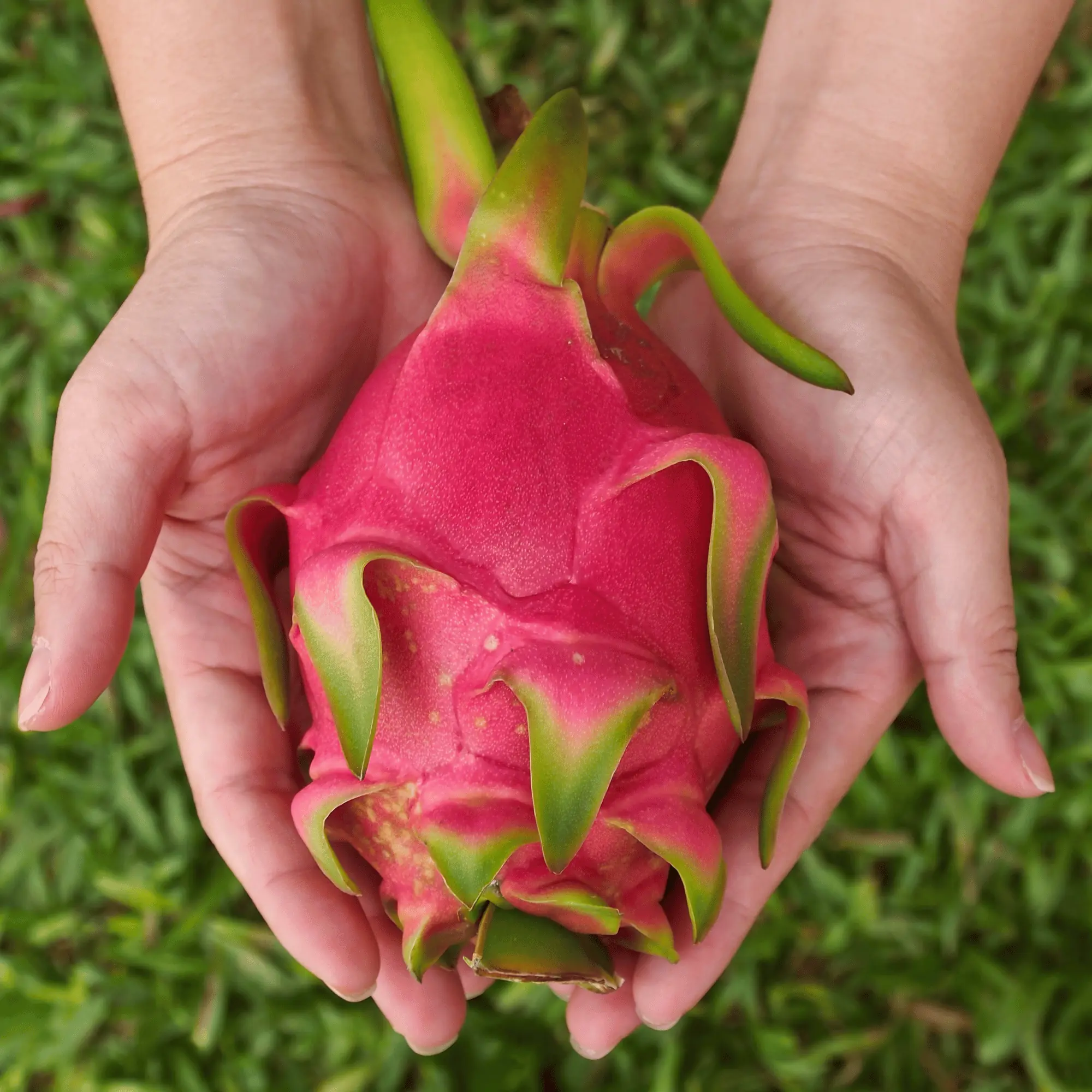Acai berries are a nutritious fruit that is becoming increasingly popular among health-conscious people. As pet owners, we always want the best for our furry friends, including providing them with healthy and delicious treats. Acai berries have gained popularity for their numerous health benefits in humans, but can dogs enjoy this superfood too? Is it suitable for your dogs? Join us as we explore the suitability of this functional food for your canine companions.
In this article, we will discuss whether dogs can eat acai berries. We’ll delve into the potential benefits and health dangers associated with feeding acai to dogs, and we’ll also discover alternative options for feeding your dogs.
Here are the topics we’re going to discuss in this blog post:
- What is Acai?
- Can dogs eat acai berries?
- 5 health benefits of acai berries to dogs
- Why you should not give acai to your dogs?
- What should I do if my dog ate acai berries?
- Alternatives to acai berries you can give your dog
What is Acai?

Acai (pronounced ah-sigh-ee) is a 1-inch round berry that comes from the acai palm tree, which is native to the rainforests of Central and South America. The berries have deep purple skin, yellow flesh, and a large-sized seed inside, resembling grapes in both size and structure.
Acai, scientifically known as Euterpe Oleacera, boasts a slightly sweet and earthy flavour often compared to blueberries paired with very dark chocolate. These small, purple berries are not only delicious but also rich in antioxidants, fiber, and essential nutrients, making them a popular choice for health-conscious individuals.
Can Dogs Eat Acai Berries?
Acai is generally intact for dogs to consume in small quantities. These berries are a rich source of antioxidants, vitamins, and minerals, which can be beneficial for your dog’s health. However, it’s important to note that acai berries contain theobromine, a compound that is toxic to dogs in large amounts. Since a dog’s digestive system cannot effectively break down this compound, the ingestion of a large quantity of acai could lead to theobromine poisoning.
The safe amount of acai for dogs depends on their size and weight. Small dogs should only eat a few berries at a time, while larger dogs can enjoy a handful. Introducing acai berries to your dog’s diet gradually is also crucial to ensure they do not experience any adverse reactions. if you have any concerns about your dog’s diet, consult with your veterinarian for personalized advice.
5 Health Benefits of Acai Berries to Dogs:

Here are five potential Health advantages of acai berries for dogs:
1. Rich in Antioxidants:
Antioxidants play a crucial role in supporting the immune system by reducing oxidative stress, which may contribute to a stronger immune response in dogs. Additionally, antioxidants help protect cells from damage caused by free radicals, providing vital cellular protection that contributes to overall cellular health and function in dogs.
2. Provides Calcium:
Calcium is an important mineral that assists in building and maintaining strong bones and teeth. It also helps to support muscle function and nerve signaling. Acai berries are a good source of calcium, providing about 10% of the daily recommended value (DV) per 100 grams of berries.
3. Anthocyanins:
Anthocyanins possess anti-inflammatory properties, which can benefit dogs with conditions involving inflammation, such as arthritis or joint issues. Additionally, these compounds may offer cardiovascular benefits by supporting heart health and improving blood vessel function. This can be particularly important for dogs prone to heart issues. some studies suggest that anthocyanins may also have protective effects against certain types of cancer.
4. Omega-3 Fatty Acid:
Omega-3 fatty acids, especially EPA and DHA found in fish oil, boast anti-inflammatory properties that may alleviate symptoms of arthritis and promote overall joint health in dogs. They also contribute to cardiovascular well-being by supporting a normal heart rhythm, reducing blood clot formation, and maintaining healthy blood vessels. This is particularly beneficial for dogs with heart conditions, and omega-3s can improve your dog’s skin and coat health.
5. High-Fiber Food:
Acai is a high-fiber food, contributing to a feeling of fullness that can be helpful in weight management. This is especially relevant for dogs that need to maintain a healthy weight. Additionally, fiber in acai can assist in regulating blood sugar levels by slowing down the absorption of sugars, which is crucial for dogs with diabetes or those at risk of developing it.
Why you should not give acai to your dogs?

While there are potential health benefits associated with acai consumption for dogs, it’s crucial to be aware of potential dangers. Below are some health dangers associated with dogs consuming these berries:
1. Theobromine:
Acai fruits contain theobromine, a compound that is toxic to dogs in large amounts. Theobromine is found in chocolate and cacao beans, which are also toxic to dogs. Dogs are more sensitive to theobromine than humans because they metabolize it more slowly. If a dog consumes too much theobromine, it can experience a variety of symptoms, including:
- Excessive urination
- Increased thirst
- Diarrhea
- Vomiting
- Muscle Tremors
- Restlessness
- Hyperactivity
- Elevated heart rate
The severity of the symptoms will depend on the amount of theobromine consumed and the size of the dog. Smaller dogs are more susceptible to theobromine poisoning than larger dogs.
2. Allergic Reaction:
Dogs, like humans, can have allergies to some foods. Introducing a new food, such as acai berries. Acai contains ficin and ficusin, both of which cause allergic reactions. Allergic reactions in dogs can manifest in different ways, and symptoms may include:
- Itching and scratching
- Swelling
- Redness or rash
- Digestive upset
- Respiratory symptoms
Individual dogs may react differently to new foods. It’s crucial to introduce any new food, including acai, gradually into your dog’s diet and monitor for any signs of allergic reactions.
What should I do if my dog ate acai berries?
if your dog has ingested a large quantity of acai, it’s essential to take the following steps:
1. Monitor Your Dog:
- Keep a close eye on your dog for any signs of distress, unusual behavior, or symptoms of discomfort. Common signs of potential issues include vomiting, diarrhea, lethargy, tremors, or difficulty breathing.
2. Check the Ingredients:
- Review the ingredients of the acai product your dog consumed. Ensure that it doesn’t contain any harmful substances, such as chocolate or xylitol, which can be toxic to dogs.
3. Contact Your Veterinarian:
- If you have concerns about your dog’s health or if they have ingested a significant amount of acai berries, contact your veterinarian promptly. Provide them with details about the quantity consumed, the specific product, and your dog’s size and breed.
4. Follow Veterinarian’s Advice:
- Your veterinarian will provide guidance based on your dog’s circumstances. They may recommend monitoring your dog at home, inducing vomiting, or bringing your dog in for an examination.
- The severity of the situation depends on factors such as the quantity of acai consumed, your dog’s size, and their sensitivity. When in doubt or if you notice any concerning symptoms, seeking professional veterinary advice is always the safest course of action.
Some tips for safely feeding acai berries to your dog?
Here are some tips for safely feeding acai berries to your dog:
- Start with a small amount and gradually increase the supply as tolerated.
- Remove any seeds or pits from the berries before feeding them to your dog.
- Do not feed your dog acai berries that are processed or sweetened.
- Mix acai berries with your dog’s regular food to make them more appealing.
- Freeze acai berries for a refreshing summer treat.
- Use acai powder as a nutritional supplement in your dog’s food.
- If you have any concerns about feeding acai berries to your dog, talk to your veterinarian.
Alternative to Acai Berries You Can Feed Your Dog:

Some dog parents may decide to remove acai from their dog’s food menu altogether to eliminate the risk of potential theobromine poisoning. However, there are several other healthy alternatives that you can consider incorporating into your dog’s diet:
- Blackberries:
Blackberry fruits serve as an excellent alternative to acai, offering a rich source of antioxidants without the associated risk of theobromine poisoning. Moreover, they contain a significant amount of minerals and vitamins, making them a wholesome addition to your dog’s diet.
- Blueberries:
Blueberries are an excellent choice for a low-calorie treat for dogs. They boast a minimal calorie content while providing a moderate amount of nutrients that contribute to the overall well-being of our furry friends.
- Cranberries:
Cranberries emerge as a nutritious substitute for acai, offering a range of health benefits for dogs. These berries play a role in cancer prevention, thanks to their rich antioxidant content. Additionally, they exhibit antibacterial properties, contributing to the fight against harmful bacteria. One notable advantage is their positive impact on a dog’s bladder health, making them particularly beneficial for urinary tract well-being.
- Strawberries:
Strawberries are another delightful fruit that dogs can enjoy. They boast high levels of vitamin C and fiber, contributing to their overall health. When offering strawberries to your dog, be sure to remove the green tops for a safe and enjoyable treat.
Conclusion:
In conclusion, while acai palms offer potential health benefits for dogs, pet parents need to navigate this superfood with caution. The presence of theobromine, a compound toxic to dogs in large quantities, raises concerns. Careful monitoring and moderation are key when introducing acai into your dog’s diet.
You should choose safer alternatives like blackberries, blueberries, cranberries, and strawberries to ensure that your furry friend can still enjoy delicious and nutritious treats without the risk of theobromine poisoning. These alternatives bring a variety of vitamins, minerals, and antioxidants to support your dog’s overall well-being.
Always consult with your veterinarian before making meaningful dietary changes for your dog. Whether you choose to include acai or opt for alternatives, your veterinarian can provide personalized advice based on your dog’s specific needs, ensuring a happy and healthy life for your cherished companion.
FAQs:
1: Can dogs eat acai berries?
Acai berries are generally safe for dogs in small quantities due to their antioxidant content. However, caution is advised because acai contains theobromine, which can be toxic to dogs in:
2: What is theobromine, and why is it a concern for dogs?
Theobromine is a compound found in chocolate and certain berries, including acai. In dogs, it can lead to theobromine poisoning, causing symptoms such as vomiting, diarrhea, increased heart rate, and, in severe cases, seizures or death.
3: What are the potential health benefits of acai for dogs?
Acai berries are affluent in antioxidants, vitamins, and minerals. They may contribute to immune system support, provide calcium for bone health, offer anti-inflammatory properties, supply omega-3 fatty acids, and act as a high-fiber food aiding in weight management.
4: Can dogs be allergic to acai berries?
Dogs, like humans, can have allergies to particular foods. Acai berries contain compounds that may cause allergic reactions. It’s essential to introduce any new food, including acai, gradually and monitor for signs of allergies, such as itching, swelling, or digestive upset.
5: What should I do if my dog ate a significant amount of acai berries?
If your dog has ingested a large number of acai berries, monitor them for symptoms of theobromine poisoning such as vomiting, diarrhea, or restlessness. Contact your veterinarian for advice on whether to induce vomiting or seek further medical attention.












